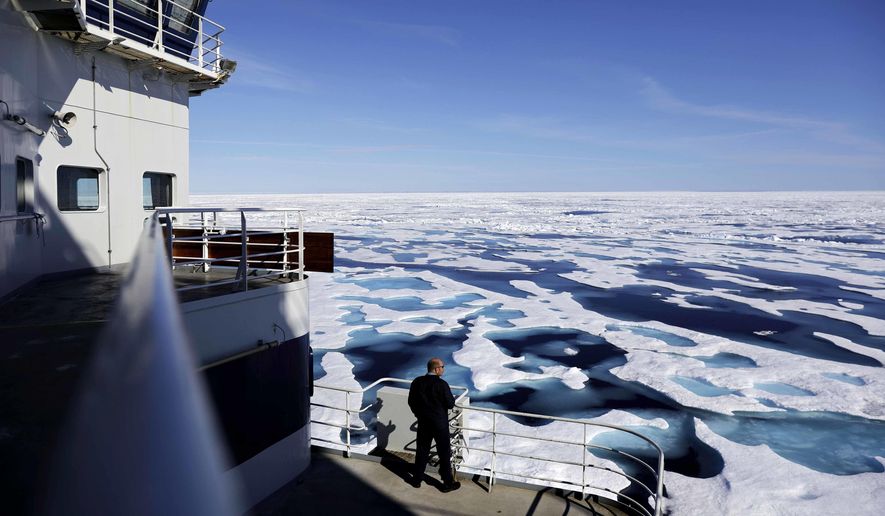OPINION:
In 2014, the Pentagon submitted a report that argued climate change was an “immediate risk” to national security. The Pentagon reiterated many of these concerns in a report five years later.
I am a retired CIA officer and not a scientist, so I’ll leave it to the climatologists for the most authoritative assessment on the pace of climate change. But there is clear evidence that the Earth is warming, sea levels are rising and the Arctic is melting.
Higher temperatures result in more rain and snowfall in some regions and droughts and wildfires in others. Former Defense Secretary James Mattis emphasized that even climate change skeptics should recognize the benefit of an insurance policy.
For the Pentagon, an insurance policy means securing bases and allocating resources to deal with humanitarian disasters and military conflicts.
Rising sea levels can seriously affect military readiness by flooding coastal bases. Opening the Arctic sea lanes has already sparked a competition among great powers for newly accessible resources. The clash will only intensify over time.
The intelligence community might not be on the hook to provide a definitive scientific analysis of climate change and global warming, but intelligence analysts can play a key role in assessing how climate change is already affecting our national security and what the trend lines suggest.
From my perspective, the intelligence community should be poised to deliver in at least three key policy areas.
First, climate change is a “threat multiplier” because it has the potential to accelerate and intensify all of today’s threats to national security.
Imagine, for example, 1 billion Chinese or a half-billion Indians protesting in the face of climate stress. Such a convulsion would make the 2011 so-called Arab Spring, which generated levels of unrest unprecedented since the fall of the Ottoman Empire, appear minuscule by comparison.
Climate change raises the specter of forced population migrations, conflict among nations over arable land and resources, and erosion of central authority. Agriculture and water sources could be at risk. With 1 billion people living in poverty and another billion living in water- and/or food-stressed locations, there will be a growing requirement to track the rise of failed states, disease outbreaks and social unrest, all of which can contribute to transnational terrorism, massive migration and war.
Second, enemy states like Russia and China already mount a full-court press of espionage, which includes targeting the U.S. private sector, to steal our cutting-edge technology. China targets U.S. defense and aerospace companies, pharmaceutical firms and universities. Add to that list technology research firms, especially leading innovators in alternative sources of energy. The intelligence community can provide warnings to these private-sector innovators and help them build effective security programs to defend against foreign espionage.
Third, Russia and China are racing to compete for newly accessible resources in regions including the Arctic. They routinely disregard international treaties they have signed in the rush to plant a flag and cash in. The intelligence community can provide a valuable service in tracking how our adversaries are mismanaging climate change policies in their own countries and interfering with efforts to address the problem on a global scale.
Intelligence and national security have usually occupied a sweet spot in our political discourse, where Democrats and Republicans can find common ground that is too often absent in domestic policy debate. Especially in today’s hyperpartisan atmosphere, elected representatives from both sides of the aisle would do well to work with the country’s intelligence agencies on understanding and countering the national security threats emanating from the globe’s shifting climate patterns.
⦁ Daniel N. Hoffman is a retired clandestine services officer and former chief of station with the Central Intelligence Agency. His combined 30 years of government service included high-level overseas and domestic positions at the CIA. He has been a Fox News contributor since May 2018. Follow him on Twitter @DanielHoffmanDC.




Please read our comment policy before commenting.